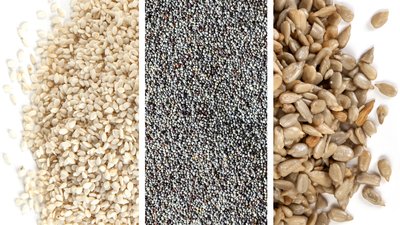Meal prep doesn't end after cooking or even plating your food. There's usually one more way you can further boost nutritional content: Add seeds.
You likely have a few seeds stored in jars in the back of your cupboard, leftovers from recipes cooked months before. There they sit, still in mint condition. While you know they're good for you, it's not always easy to integrate these small nutritional powerhouses into your diet.
Flax seeds and chia may hog the limelight, but there are other varieties you can eat to boost your performance and reach your goals. Not sure where to start? Don't worry! We've taken the guesswork out of the equation by rounding up some good-for-you choices.
Depending on your goals, they can help support your cardiac health, your immune system, your endurance, and your muscle-building efforts.
Hemp Seeds
A review article in Nutrition, Metabolism and Cardiovascular Diseases found that alpha-linolenic acid, the same type of essential fatty acid found in hemp seeds, may help support heart health.[1]
- Add them to oatmeal or muesli for an extra crunch.
- Chuck a few in any flavored protein shake.
- Combine them with cooked quinoa for a nutty flavor boost.
- Coat fish or chicken with ground hemp seeds before frying.
- Include generous helpings in a homemade pesto.
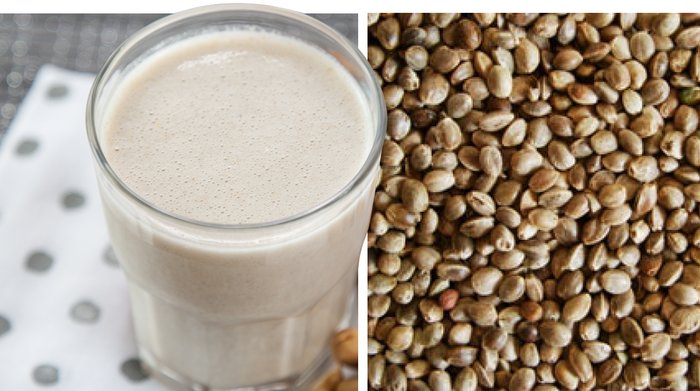
Nutrition Facts
- Serving size: 100 g
- Calories: 575
- Fat: 44 g
- Carbs: 12 g
- Protein: 32 g
Sesame Seeds
Sesame seeds are exceptionally high in copper and manganese, both of which help your joints form collagen and support healthy bone structure.
- Dust onto any Asian-inspired chicken dish.
- Sprinkle in any type of icing for an extra pop.
- Apply liberally to any salad.
- Use in a recipe to compliment fish such as salmon.
- Add to a sauté of greens and roasted vegetables.
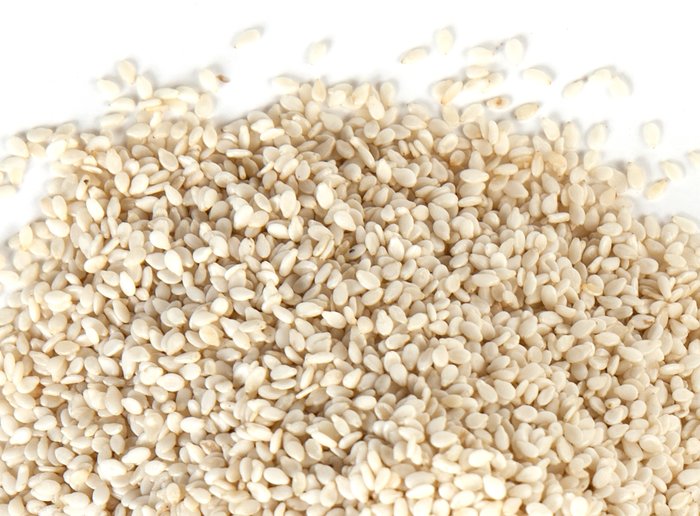
Nutrition Facts
- Serving size: 100 g
- Calories: 565
- Fat: 44 g
- Carbs: 26 g
- Protein: 17 g
Sunflower Seeds
The multivitamin of the seed world, these guys have the highest levels of phytosterols, which may help support healthy lipid levels and heart health.
- Top any tuna-based dish with sunflower seeds.
- Sprinkle them over roasted pumpkin.
- Add them to biscuit recipes for extra crunch.
- Stuff sunflower seeds into chicken wraps for a new take on an old favorite.
- Pile seeds high on top of stuffed peppers.
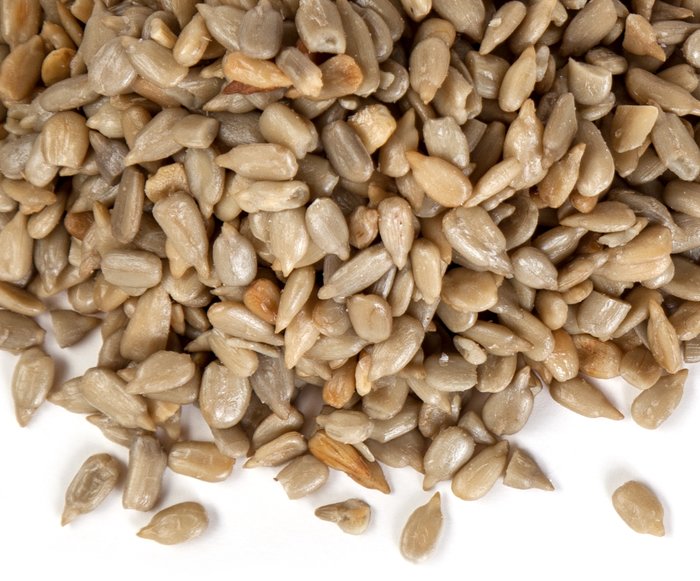
Nutrition Facts
- Serving size: 100 g
- Calories: 584
- Fat: 51 g
- Carbs: 20 g
- Protein: 21 g
Poppy Seeds
While chia is higher in omega-3s, poppy seeds are substantially higher in manganese, calcium, iron, zinc, copper, selenium and, well, just about every nutrient.
- Sprinkle poppy seeds on any dessert.
- Add them to oil-based salad dressings.
- Pour generous helpings over fresh pasta.
- Add seeds to pancakes to bulk up their fiber content.
- Pepper the poppy seeds into curries and stews.
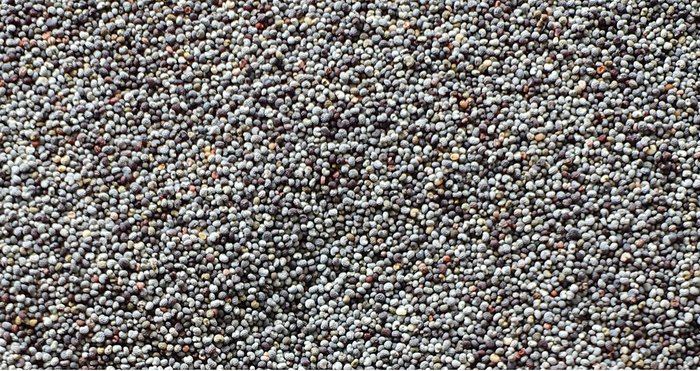
Nutrition Facts
- Serving size: 100 g
- Calories: 525
- Fat: 42 g
- Carbs: 28 g
- Protein: 18 g
References
- De Lorgeril, M., & Salen, P. (2004). Alpha-linolenic acid and coronary heart disease. Nutrition, Metabolism and Cardiovascular Diseases, 14(3), 162-169.

